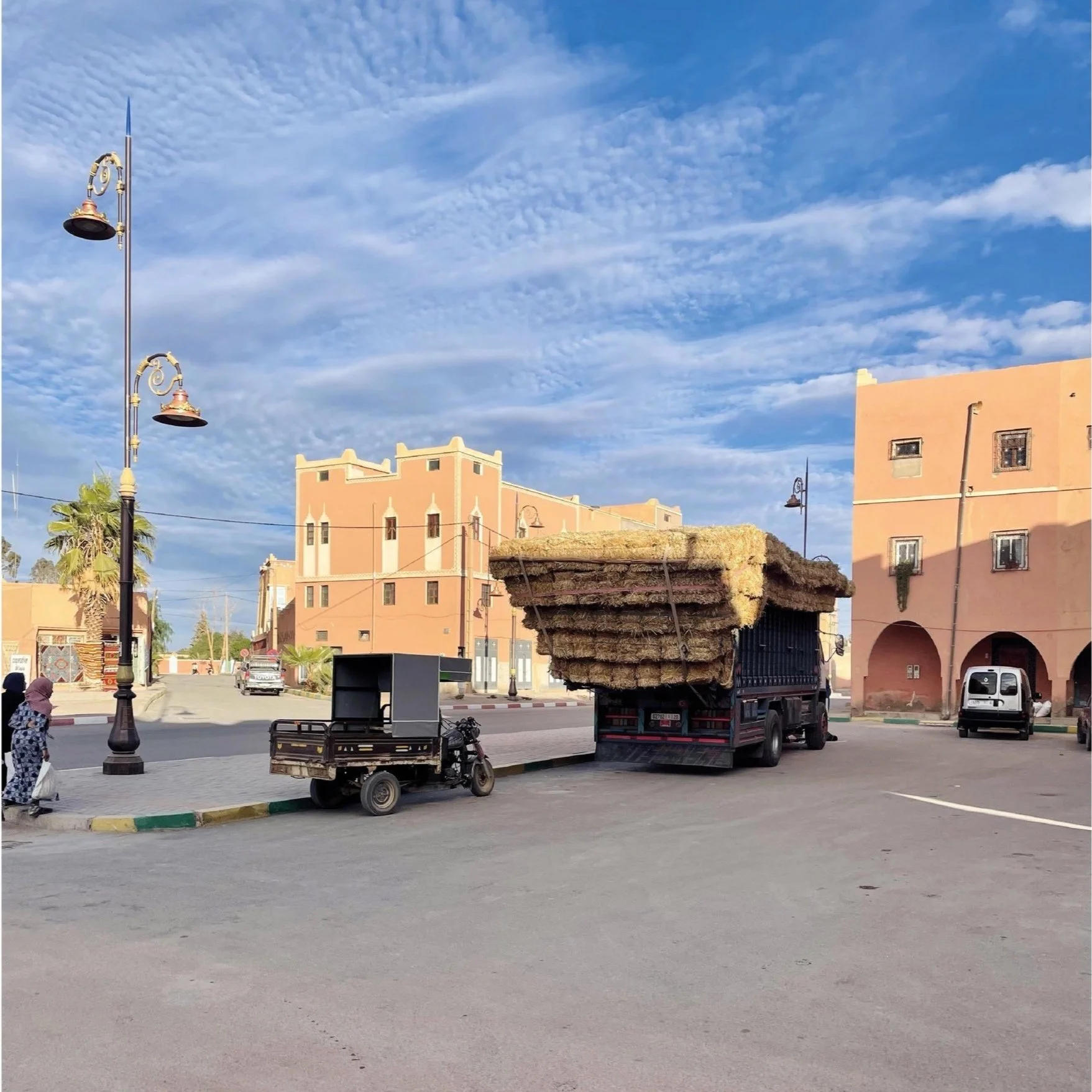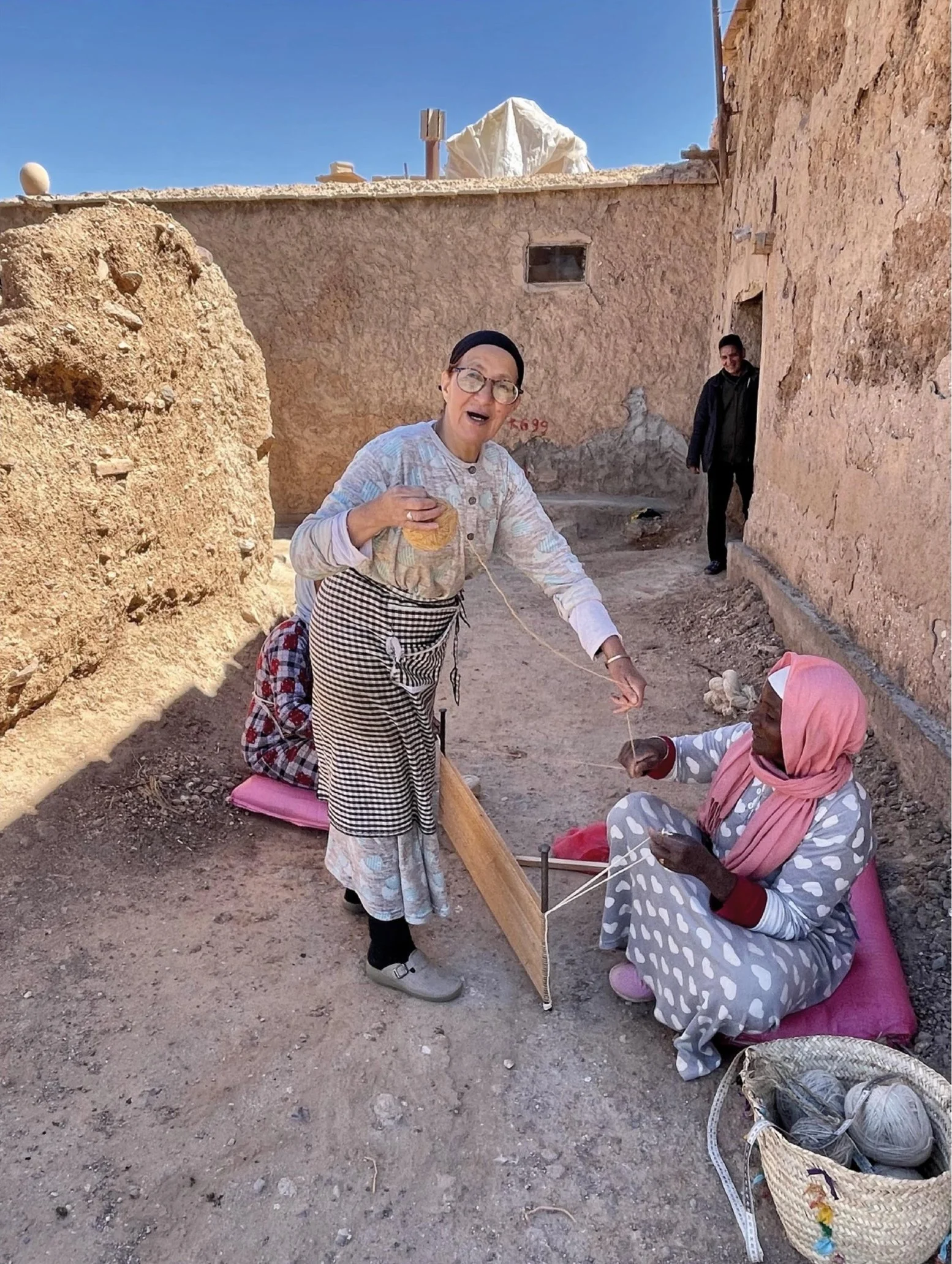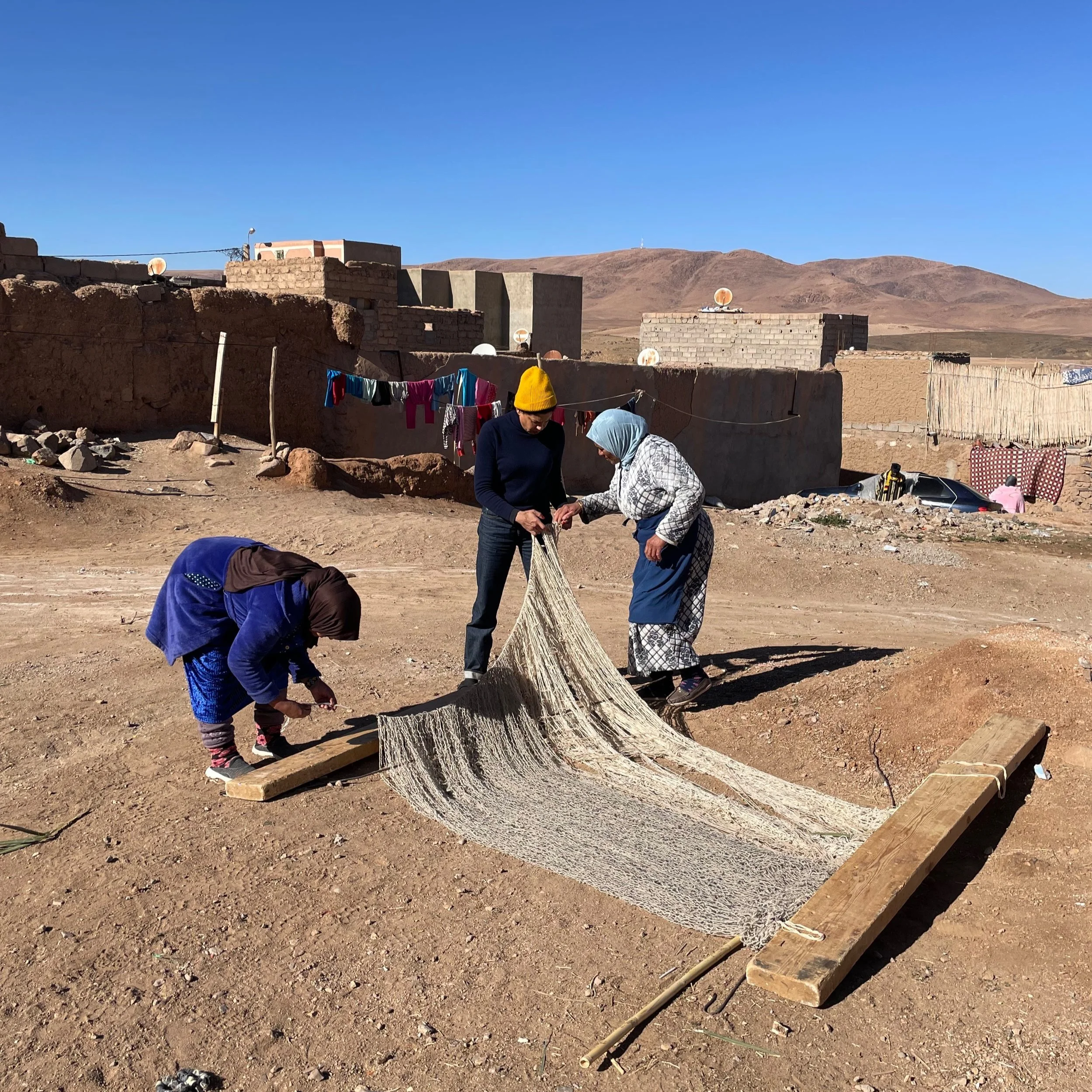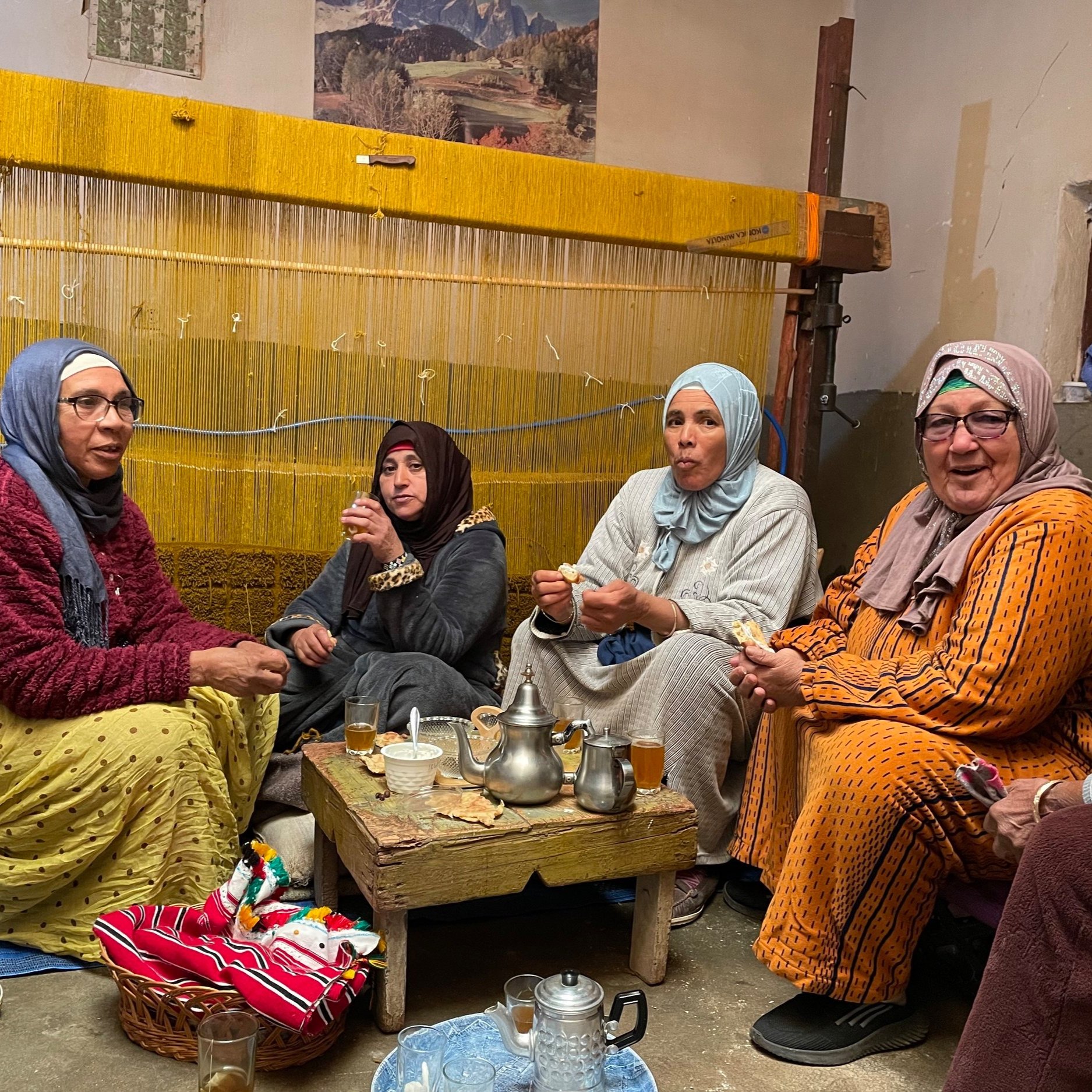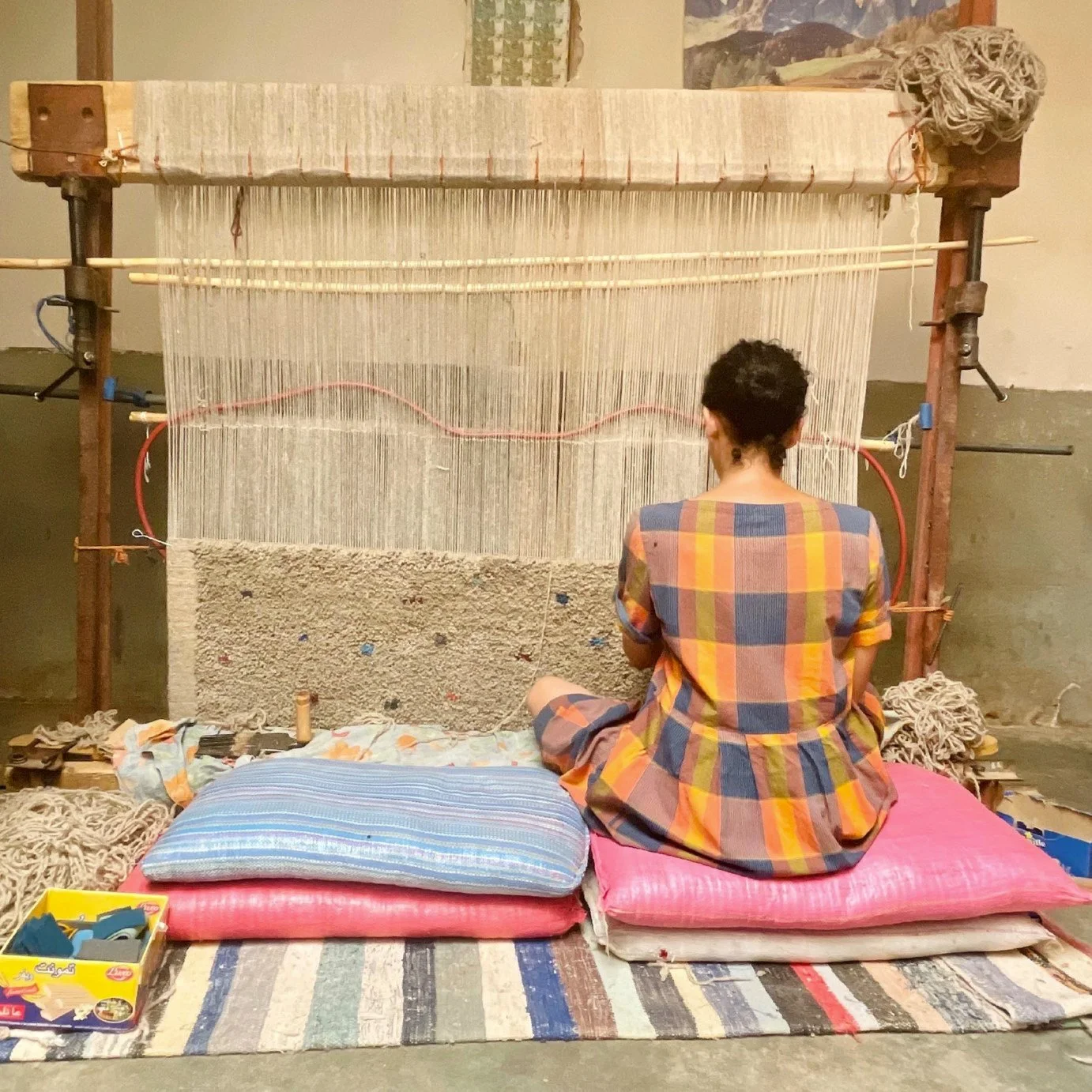Residency Diary
Reflecting on my seven-month residency at a Moroccan carpet weaving cooperative in Southern Morocco, I'm filled with awe. My goal was to immerse myself in the world of Moroccan carpets and live as the weavers do. It was a transformative journey that still resonates deeply within me. I navigated between my Western world with its independence and the belief in shaping one's destiny and the world of Amazigh women who embrace their roles with a profound sense of resignation. Within their resignation, they draw strength from an instinctual, primordial force. Life in the flatlands of the pre-Sahara region is intimately entwined with the rising and setting of the sun. I invite you to join me on this remarkable journey.
X Mina
Homecoming
Stepping off the plane in Marrakech, a symphony of scents, colors, and sounds envelops me. I'm greeted by a profound sense of belonging. Morocco is my motherland, and the Netherlands is my homeland. A five-hour mountain drive transports me to Taznakht, where I find solace. The mountains offer me a reassuring, unwavering presence, much like the resilient women of the village.
Wool Cabinet
While I’m in Morocco Fadma and I are constantly busy with looking for ways to professionalize the cooperation. As we each bring unique perspectives – hers that of production and mine being that of a European rug dealer – we endeavor to devise and experiment with solutions that can benefit both of us. One of the challenges we encountered was the disorganized wool stock, which was causing unnecessary extra time in the production process. Thanks to a generous donation from JAM* architects, Fadma and I were able to establish a cabinet for the wool, enabling the weavers to efficiently organize it by color.
Amazigh Hospitality
I found myself living with Fadma Aït Oukhéchif, the director of the weaving cooperative. While our native languages differ, with her speaking Amazigh and me speaking Dutch, we communicate in Moroccan Arabic, Darija. Fadma and I hail from disparate worlds, yet we understand each other's language—the language of the heart. It's been a privilege to learn the craft from her, to bask in her boundless hospitality and warmth, and savor her delectable cuisine. I felt embraced and deeply connected to her, her family, and the village community. Fadma, thank you from the bottom of my heart; you are a true inspiration.
Setting up the loom
After spending some time in Morocco and closely observing the weavers in the workshop, it was time for me to establish my own loom. I wanted to experience firsthand what it's like to spend hours and hours behind the loom, with hands that often feel the strain and a mind in a meditative state. The process of setting up the warp threads is quite intricate, with the wool frequently becoming entangled. The final rhythmic structure of the wool only becomes apparent during the actual weaving. But prior to that, I was fortunate to have my personal teachers.
The female weavers
A well-known Dutch word that fits perfectly on the atmosphere in the weaving workshops in Taznakht is ‘gezelligheid’. There is a constant chatter between the women and every aspect of life finds a place within the workshop. They will always speak their mind, and even though they also argue, at the end of the day they are a tightly-knit family that looks out for one another. Spending time with them every day, knotting rugs side by side, made me feel like I was a part of their family, even though I was an outsider at the same time.
Fruits of the Loom
Thanks to the residency, many new questions arose in me, relating to my own position and that of my mother, grandmother, and further foremothers. The reflection that followed provided many insights into the deeper meaning of emigration and immigration. The conflict that comes with leaving home and hearth, being cut off from everything you know, and the confusion of a new country. As the child of immigrants, I constantly navigated between an old and a new world. A new world that offers many opportunities to young women and, on the other hand, the old world. A world in which femininity is not about speed and rationality but much more about feeling and intuition.
Fresh bread
I’m not a bread eater when I’m in The Netherlands. So the smell of freshly baked bread in the morning is something that I will always connect to Morocco. After some hard kneeling work the dough for the flat bread is ready to be baked. To do so it’s pushed against the walls of the primitive clay ovens while the coals in the bottom glow. Giving the bread, once it’s ready, a funny curve. It’s a reminder of how industrialization shaped our lives in The Netherlands.

